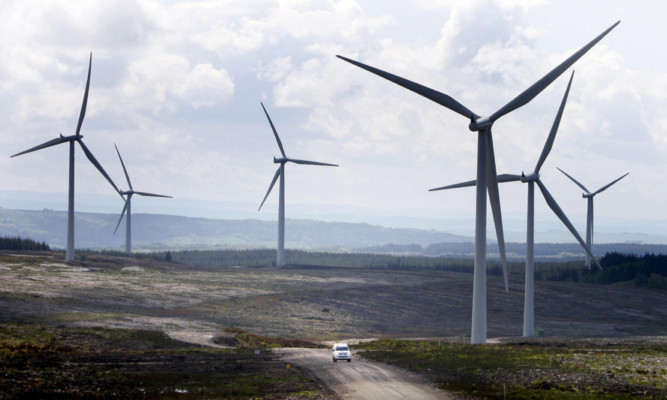Energy bills could rocket to £3,500 a year because of the inefficiency of windfarms, an MEP has claimed.
Struan Stevenson launched his book, The Myth of Green Energy, and said fuel poverty where over 10% of a household’s income is spent on electricity and gas would increase in the coming years.
The Conservative politician also claimed there could be “black outs” in the future as Scotland has rejected nuclear power and become reliant on diminishing fossil fuels.
He said: “In every country where wind turbines have been installed they have failed to demonstrate economic feasibility; they have failed to demonstrate viability as a solution to global warming; they have failed to achieve significant CO2 reductions and have failed to provide efficient electricity production or protection of the environment.
“Indeed in countries where industrial wind power has been added to the grid in any volume, consumer costs have rocketed. The two countries with the highest numbers of installed commercial wind turbines, Germany and Denmark, now have the highest electricity bills in Europe.
“And yet in Germany, Der Spiegel reported in a recent article that despite 20,000 installed turbines, CO2 emissions have not been reduced by even a single gram, because additional coal-burning plants have had to be built to support wind power.”
Mr Stevenson cited evidence from the Department of Energy, which says 5.5 million UK households are in fuel poverty, and a Scottish Government study which shows fuel bills are rising three times faster than wages. The average annual payout is now £1,402, up nearly 62% since 2003, during which time wages have increased by 19%.
Energy minister Fergus Ewing said in a later debate yesterday that where the Scottish Government is the decision-taker on renewables applications, it would only approve “the right developments in the right places”.
He said he was encouraged by ways the planning system can help deliver the Government’s target to generate the equivalent of 100% of Scotland’s electricity demands using renewables by 2020.
Meanwhile, he said the SNP administration had provided £673,000 to help planning authorities process turbine applications.
“Planning policy must continue to support a diverse range of renewable energy technologies, guiding development to appropriate locations,” he said.
“Our review of the national planning framework on Scottish planning policy will reinforce and clarify policy on the areas we expect to protected from significant development.”
Mr Ewing said: “Scotland’s renewables output, especially offshore wind, can play a vital role in helping to keep the lights on across the UK given that recent Ofgem figures showing that the UK’s electricity capacity margin could drop from 14% to under 5% by 2015/16.”
